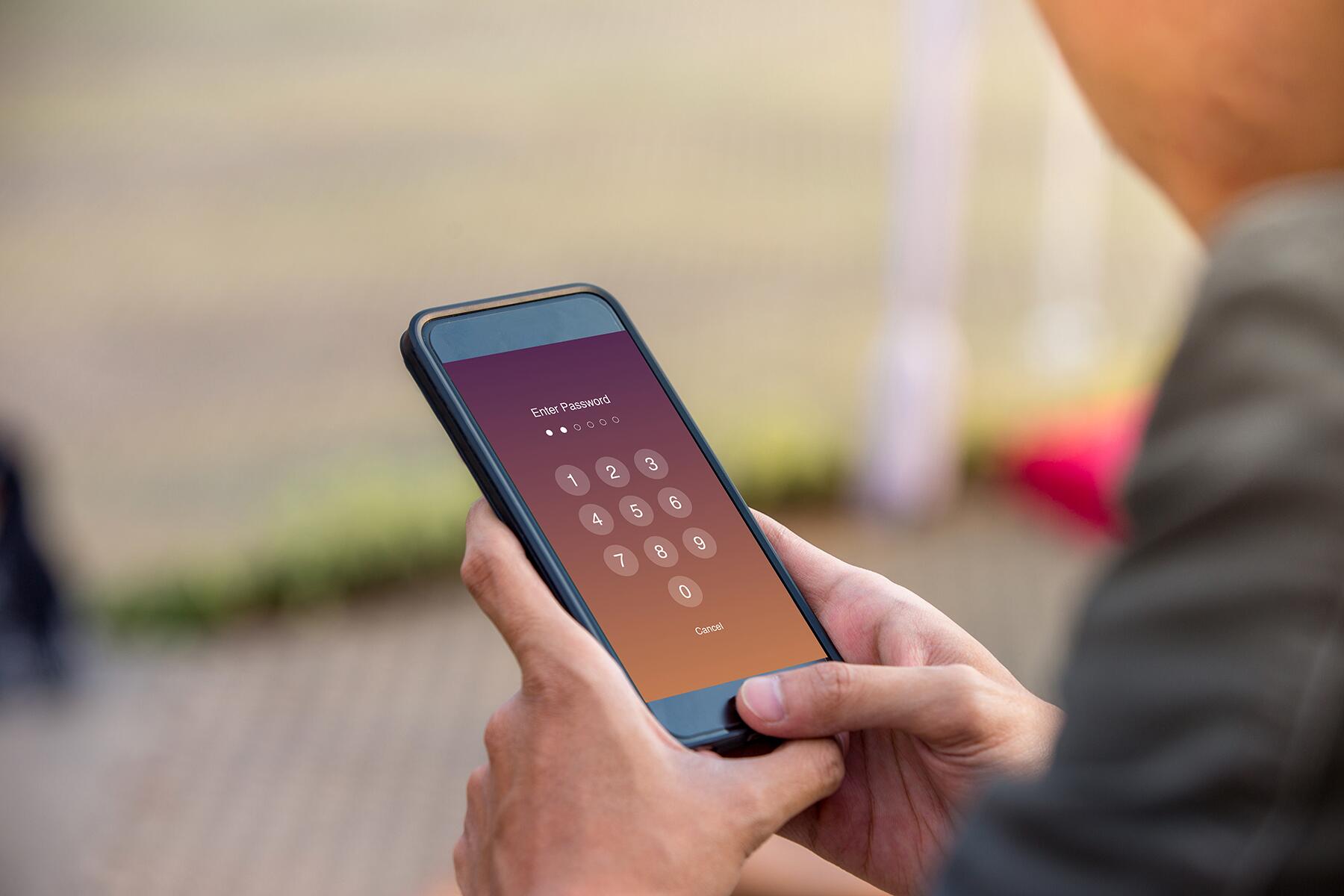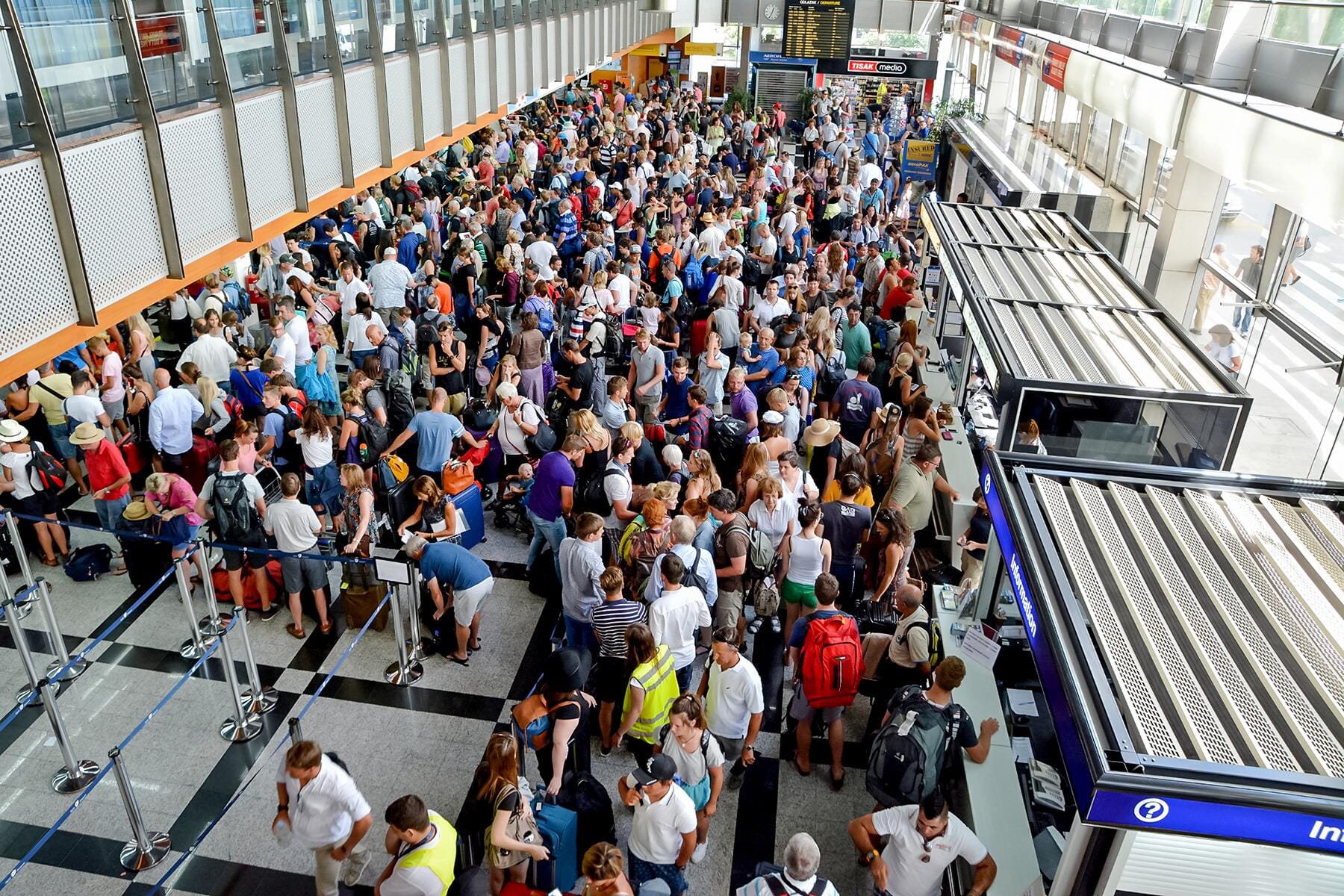Flight delays can ruin your trip, so don't you think you should be compensated?
We’ve all been there. Stuck on the tarmac. Waiting for hours by the gate. Lost luggage on arrival. The frustration of flying can grate on even the most patient travelers. But the real question that most passengers have in these fraught moments is: What can you do about it?
Well, it’s important for you to know that you actually have rights, and many of those rights come in the form of restitution. Before you go hiring a lawyer, there are now a number of flight compensation websites that have popped up to help you claim your rights (and money) for a fee.
One of those companies is AirHelp, which has helped more than 800,000 passengers claim compensation for disrupted flights. We spoke with Alice Mariscotti-Wyatt, AirHelp’s Head of Brand, Content & Communications, to see how the company works and to help you understand your rights when you fly around the world.
Fodor’s: How does AirHelp technically work? Are you sort of taking the place of a lawyer?
Alice Mariscotti-Wyatt: We are specialists in helping people make a claim. People can make these claims themselves directly with the airline, they can use a lawyer, but we offer them that sort of in-between space where we make it risk-free. We will only charge a fee if [the passenger is] successful in getting compensation. So, they don’t have to take on any risk themselves. And we know the laws, and we’ve got access to a lot of resources that customers don’t have.
Recommended Fodor’s Video
A customer will go to your website, they’ll put in their flight, what the problem was, you’ll tell them whether they can get compensation or not. Let’s say that compensation is $500. You get a cut of that $500. And they get the rest?
For the claims that we take, we take a percentage. It is equivalent to 35% [and it] may go up to 50%. If we have to take legal action, if the [airline] goes to court, then there’s a fee to sort of cover that.
You’re sort of acting as both an insurance company and a law firm at the same time?
Sort of, I mean, we’re not a law firm, we don’t take the claims to court ourselves. We have lawyers, we will send them to lawyers who handle that part of it. We just take on the claims and help the passengers with the admin of the claim itself.
You also have a subscription service? Explain how the subscription service works.
It’s called AirHelp Plus, and it’s 20 Euros for a year. It’s a way of accessing our services without having to pay any proportion of the compensation. So, if you have a claim, the service is exactly the same. We will still do everything, all parts of it. But we don’t take any cut of the compensation in those sorts of cases.
So, the 35% cut goes away?
You get 100% of what we get for you, and the service is the same. We can also do a couple of extra things for people who purchase the subscription. We can ask airlines to repay expenses, for example, if a customer had to…buy a hotel to cover them overnight. That’s very hard for us to do on a fee model. But when we’ve got a subscription, we can ask the airline to repay that, and all of that money will go again to the customer.
You scour governmental rules to figure out what are passenger rights so that passengers don’t have to do it themselves. You’ve done that with the EU. Where else are you? Are you everywhere?
Unfortunately, not everywhere… But the two [regions] that we work under is [European Union] law, so that covers all states in the E.U., and we also work in Brazil, where there are really strong passenger rights as well.
So, you’re not in the United States?
No, but the thing that we would love people in the United States to know is that they are covered by these laws whenever they’re flying in any of these regions. Passenger rights aren’t based on citizenship or nationality, they’re based on where you’re traveling. So, anyone who is flying from Europe, even if they’re flying to the United States, is still going to be covered under the same law and have exactly the same rights to get compensation.
Are you planning on expanding to other places?
We are constantly testing other laws and looking at where we can expand. Canada introduced passenger rights in 2019, which is something we’re currently looking at. The U.K. has its own version of the European law after it left the E.U. So, that’s something that we’re also looking at.
What are some obvious ways that passengers can get compensated?
In the E.U. you can get compensation if your flight has been delayed by three hours or more. Or if it’s been canceled less than two weeks in advance. You also are entitled to compensation if your flight has been overbooked, and you’re not allowed onto the plane because of that. The U.S. does have some passenger rights. It’s not nearly as strong, but it does have laws against overbooking that are pretty strong.
Does that mean a delay for any reason, or does it have to be something specific?
The exclusion is if it’s not the airline’s fault. So, if it’s something that’s outside of their control, which could be something like an air traffic control strike, or it could be bad weather, then no, they don’t have to pay compensation. The law is there to be fair and to say, well, if you have delayed your customers, if there is a mechanical problem, staffing issues, staff strikes by airline crew, [then] passengers are entitled to compensation.
What about COVID?
A pandemic is considered not something within the airline’s control. But what we can argue in some cases, is that as flights return to normal, it is now within the airline’s control, they should be able to plan ahead. The current situation is a bit more complicated. Obviously, at the start of the pandemic, it was quite clear that that was something the airlines could not plan for. Now, we argue that they can.
Let’s talk about vouchers. You say passengers should never accept a voucher. Why?
We say that you should never accept a voucher without understanding the terms and conditions of it. We want passengers to be aware of their rights and to know exactly how much money they could be entitled to. For example, in the U.S. for overbooking, passengers are entitled to $1,350. So, if airlines are offering [passengers] vouchers for far less, we’d like them to know exactly how much they are legally entitled to… It is the passenger’s decision as to whether or not they want to accept a voucher, but we don’t want them to accept it.
So, if I subscribe to your service, but I’m flying domestically in America, and I have access to your live chat, do you have experts who can still help me?
Yes, we can help passengers understand their rights. Again, our service is primarily for the European and Brazilian air passenger, those are our areas of expertise. But the chat service is there to help customers who are dealing with it, and to help them understand what they need to do in that moment to get back on track. The biggest [passenger] concern [when there’s a delay] is often not about compensation, but about how do I get to my destination? And that’s something where we can tell them, you need to talk to the airline, you are entitled to a replacement flight and [we can] help them sort that aspect of it.
What is covered? If you lose your luggage, you’re stuck on the tarmac, what are the things you advise passengers to be aware of?
In Europe, EC261 entitles passengers the compensation for delays, cancellations, and overbookings, as long as it’s not an extraordinary circumstance. It also allows them to say that if a flight is canceled, the airline must offer them a replacement flight to that destination or a full refund of the ticket price. It entitles them to care–there are distinctions, of course–but usually after two hours, passengers are entitled to food and drinks and access to communications. And if the disruption is going to be overnight, then they’re also entitled to hotel accommodation and transport to and from that accommodation and the airport. Most laws have a variation on those. But there are obviously distinctions on where exactly the sort of time limits differ or sort of kick in.
Under European law, the airline is supposed to provide these things for you. If they don’t, you can claim it back from the airline. That’s something that we can’t deal with, except for our members with the subscription service. There are also similar laws, there’s a law called the Montreal Convention, which applies to flights…in 130 countries… And that [does] a similar thing that allows passengers to claim back from the airline, any costs that they have incurred, because of the disruption.
What’s the most anyone can get back compensation-wise?
In Europe, it is 600 Euros, which is roughly about 700 U.S. Dollars.
And what about baggage?
There are a couple of laws that help with baggage problems. The Montreal Convention actually does have some pretty good protections for baggage. If you’re on an international flight, that will apply. And that allows you to claim back up to $1,700 for damages to luggage. The limits on baggage can be quite high. The problem you have with anything baggage-claim wise, you have to report them very quickly. You have to go straight to the baggage counter at the airport and report the problem. And then you’ve also got to have receipts to be able to prove the value of anything that’s in your luggage. There’s also an amount, it actually is higher for U.S. domestic flights. The U.S. has laws that allow for domestic flights and that limit is set for luggage at $3,800.



